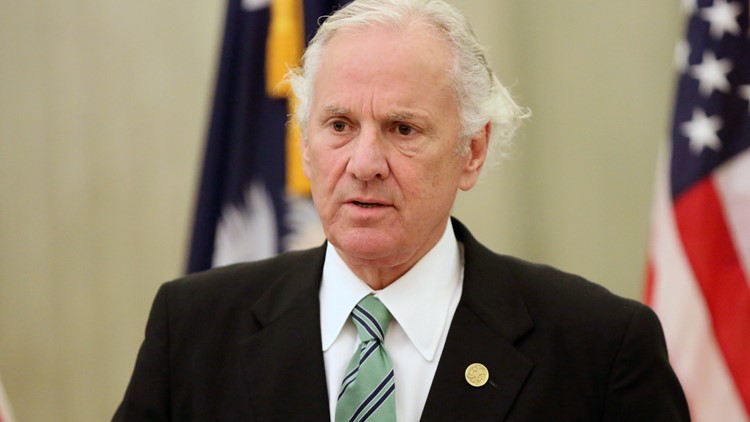COLUMBIA, S.C. — South Carolina joined a coalition of states, including Alaska, Texas, Ohio, Florida, and Arizona, taking steps toward legal action fighting the federal vaccine mandate on private companies with 100 or more employees.
“We have been stunned by the overreach of the Biden Administration. Stunned,” South Carolina Governor Henry McMaster said while addressing reporters on Thursday. “There should be no mandates. The people have ample access to the vaccine if they want it.”
On Thursday, the Biden administration announced new vaccine requirements for private employers with 100 or more employees. Beginning Jan. 4, the mandate requires workers to be vaccinated or get tested weekly.
Shortly after the new mandate was announced on Thursday, McMaster issued an executive order prohibiting any state cabinet agency from issuing or enforcing vaccine mandates.
Currently, about 55% of South Carolina residents are fully vaccinated. In neighboring North Carolina, 56% of residents are fully vaccinated with 58% of residents fully vaccinated nationwide.
WHAT CAN BUSINESSES DO?
The possible lawsuit, along with the new executive order, raises questions on what guidelines South Carolina businesses should follow.
Occupational Safety and Health Administration (OSHA), who is responsible for enforcing the mandate, met with chamber of commerce leaders across the country on Friday afternoon to explain the guidelines.
“According to OSHA, since this is an emergency mandate, that supersedes anything at the state level,” Dean Faile, who is the President and CEO of York County’s Regional Chamber of Commerce, explained. “Now we all know that once a state attorney general or anyone files lawsuits, the ultimate decision-maker may rest in the hands of the Supreme Court.”
In the meantime, noncompliance could cost companies. Faile said according to information shared by OSHA, companies could face a fee of $14,000 per infraction.
POTENTIAL IMPACTS ON LABOR MARKET
One argument from some people opposing the vaccine mandate is the impact on workers and the labor market.
“For us, manufacturing is a key component to our economy,” Jamie Gilbert, the Director of Economic Development in Lancaster County, South Carolina, which is home to several large manufacturing companies.
According to Gilbert, the manufacturing industry has been one of the hardest hit by worker shortages. Gilbert believes the new vaccine mandate could make it even tougher for employers to find labor.
“It’s an employee market. I can go to a company with 100 or less employees and not get subjected to a vaccination,” Gilbert said.
In October, the economy added 531,000 jobs, with unemployment falling to 4.6 percent from 4.8 percent.
Contact Indira Eskieva at ieskieva@wcnc.com and follow her on Facebook and Twitter and Instagram.



